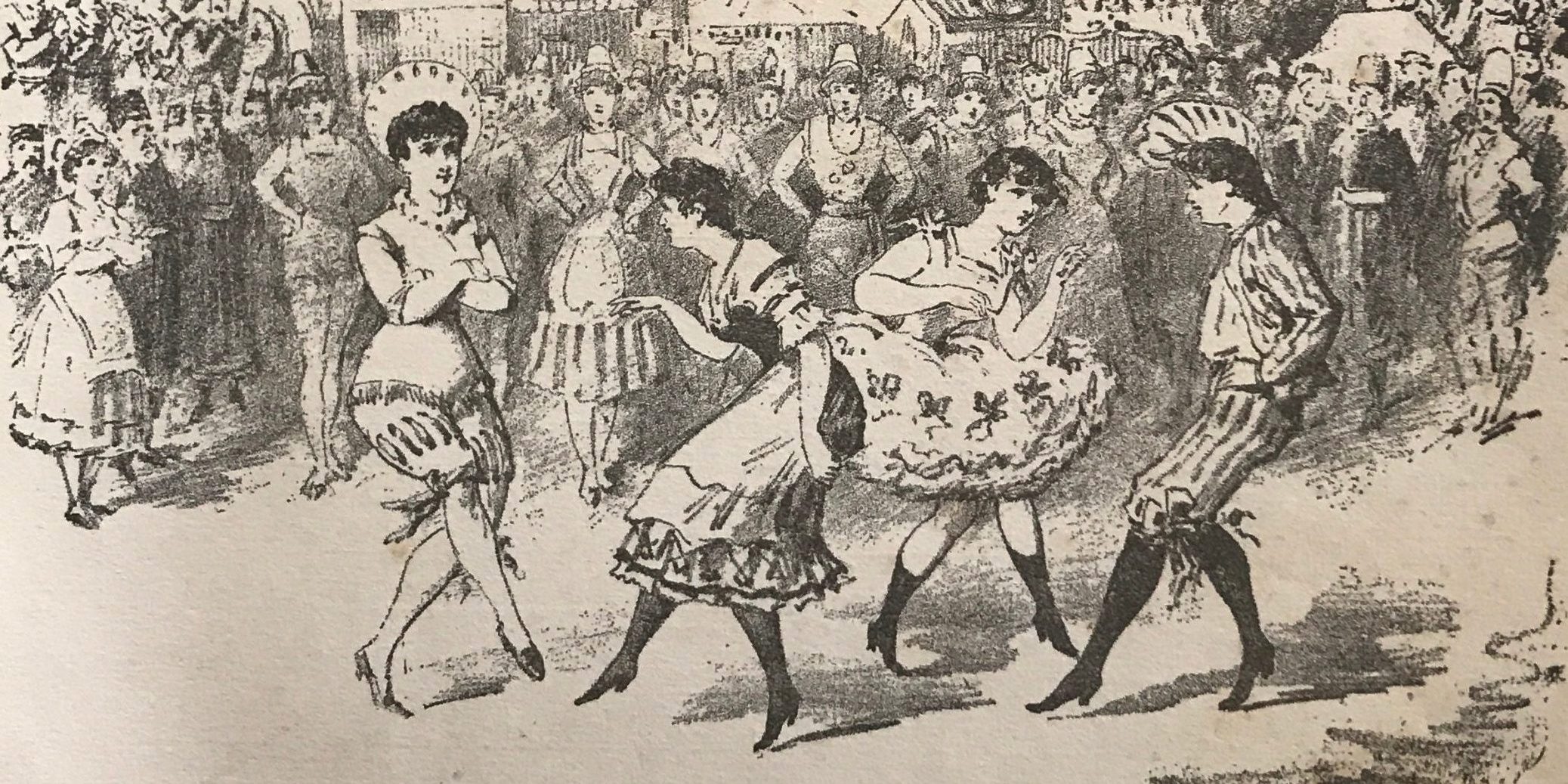Hello! Welcome to my new website where I will share the highlights of my Rosa Troupe research. It is a genuine notebook which I will use to help organise some of the information I have. I hope that by opening it up to the world that it is of use to others. I might also receive some helpful advice and make some new discoveries.
The task of putting together the Rose Troupe story is huge. They were hard working and involved in a diverse range of performances from the late Victorian to early Edwardian period, in both the UK and USA. They worked with some of the greatest stars of the age, including Sir Henry Irving, Emily Soldene, Vesta Tilly, and a young Ninette de Valois.
My interest was sparked by my grandmother, as her own grandfather was David Abrahams, a member of the Rosa Troupe. However, when she told his story she only knew that he was an Victorian animal impersonator who left his family in London to tour America. She had no photos of him, just two theatre programmes passed down to her, and some sketchy memory of the family being ‘theatrical’ with his sisters being ballerinas.
Hearing her story was enough to lead to a lifelong fascination with finding out more about his. I had no real tools to do so until newspaper and other archives started to be digitised online, as I needed those keyword searches to find him in the depths of the historical record. I was overwhelmed and astonished by what I found. Slowly and steadily I have pieced together his career, one passing reference at a time. I discovered more in turn about his sisters and the Rosa Troupe. The more I have learnt the more I have respected their hard work, from a very early age, and how their story is also one of the development of pantomime, music hall, and ballet. They may not have been the most famous of stars, but they were well known and involved in some of the most important performances of their time.
I am of course writing a book, but it is a slow task. There are no diaries and only limited first hand accounts, making it a painstaking process. Each new performance to research and understand opens up new avenues and personalities to study. I’m also an amateur historian and geneologist, so still learning about the skills of interpretation and context. My day job is in social and market research, commissioning and understanding focus groups, surveys, and other contemporary data. The precision required in that role requires a study of detail and a high degree of accuracy. This makes me a rather thorough historian, checking every detail and distrusting anything without a footnote or source. I strongly expect when I have finished, and one day I will, that this will be the most in-depth study of performers of this type available.
In building this website I’ve put together some useful resources to help tell their story overall, and give some structure to the individual posts. I hope that you find them as useful as I do.
- About the Rosa Troupe: Individual biographies of the four members of the Rosa Troupe.
- Key Productions: Timeline of just some of the most important productions that members of the Rosa Troupe undertook as a group or individually.
- Library: A collection of online resources connected to the Rosa Troupe.
- Contact me: Drop me a message if you have any queries, spot a mistake, or have some new information you would like to share.
And, to start off an interview with the man whose antics sparked my interest. In early 1893 David Abrahams was walking along the promenade at Brighton and bumped into a journalist who asked him about his career at date. It is a fairly faithful and fun account, focusing on the high points as would be expected in any celebrity interview and revealing an rather engaging personality.
What he didn’t mention in the interview was that he was rather lost in Brighton, apparently choosing not to return home to his wife and young family in London. He had remained on the south coast of England even after his pantomime run had closed early due in part to the star Millie Hylton walking out. David himself a few months later would leave his family and move to America, perhaps revealing his hestitancy.
However, the full story will have to wait for another day. In the meantime find out what David Abrahams had to say.
Picture credit: Front page of sheet music c.1880s in author’s private collection, of a quadrille said to be danced by the Rosa Troupe.
